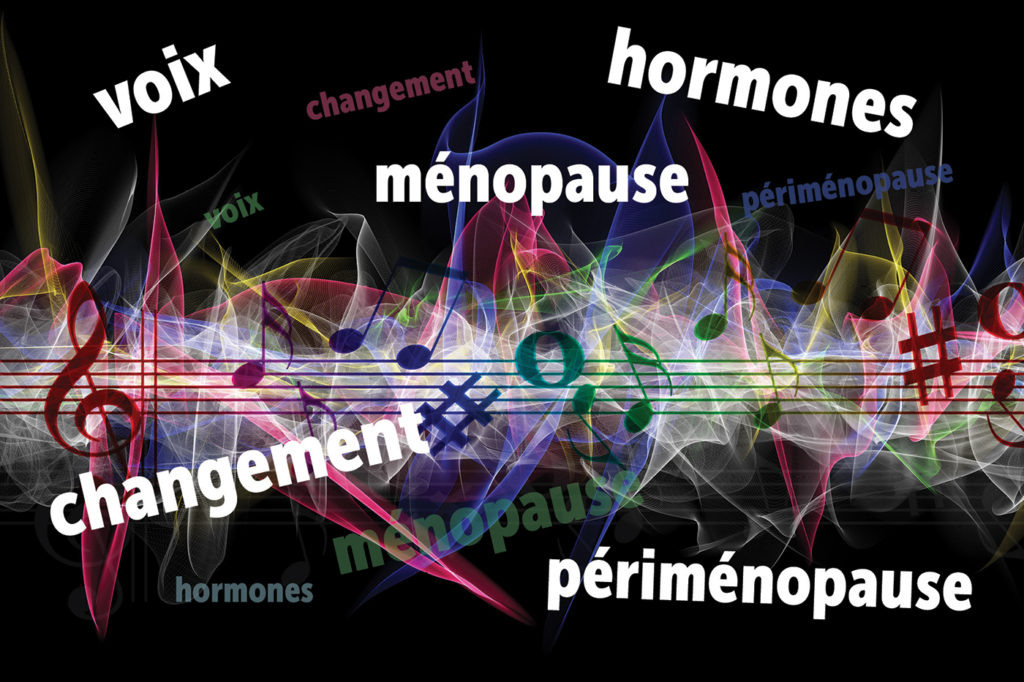
In my Singing and Vocal Technique and Voice and Well-being courses, particular attention is paid to the voices during menopause.
The musical instrument, the larynx, is hormone-dependent, and evolves along with a person’s sexual maturity.
Approximately twenty-five percent of AFAB singers at every skill level suffer from vocal problems during perimenopause and menopause, which are directly linked to hormonal fluctuations.
Menopausal vocal syndrome
As far back as 1999, Dr Jean Abitbol and colleagues published a study describing what they called menopausal vocal syndrome: reduced amplitude, strength, flexibility, endurance, vibrato, and sound quality.
Other symptoms described since include increased mucus production, the appearance of pharyngolaryngeal reflux (also known as silent reflux, which is not the same as heartburn or acid reflux), and dry throat and mouth.
A taboo subject, with little available information
Few singers and singing teachers understand the changes that occur during these potentially difficult hormonal shifts. Singers often only seek help when they are in crisis. Singing teachers and vocal coaches should be better informed to prepare singers for changes like menopausal vocal syndrome and equip them to help them avoid or mitigate inconveniences that can arise.

You are not alone
Because of that lack of information, singers who experience these changes can feel isolated, which causes a great deal of anxiety and can even lead them to question their professional career or amateur practice. For some, singing isn’t fun anymore. For those whose life is centred on singing, the experience is dramatic, calling into question their very identity.
But rest assured: you’re not alone. Menopausal vocal syndrome can happen to women with little or no vocal training and to professional singers with extensive vocal expertise.
I can guide you through the process of hormonal changes affecting your voice and help you implement strategies to continue to develop your voice, enjoy it, and change or adapt repertoire with an appropriate plan according to your needs, lifestyle, and goals. Personalized vocal coaching is always important, but it’s really crucial during transitional periods.
I recommend Singing Through Change: Women’s Voices in Midlife, Menopause, and Beyond an excellent book about the voice during menopause and vocal ageing.